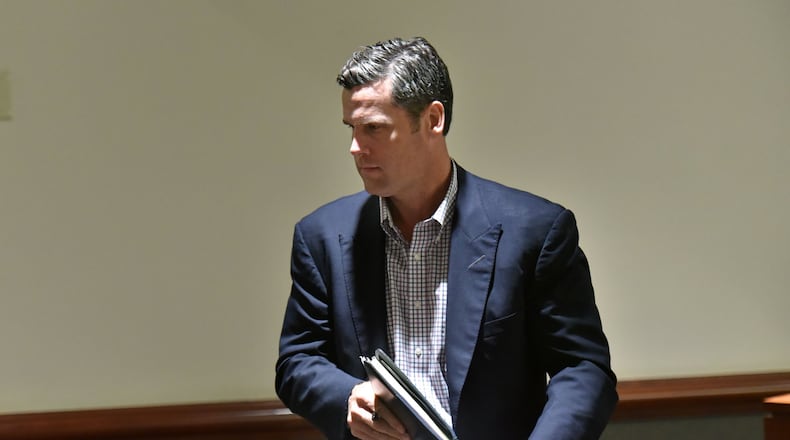Go to myAJC.com to read the AJC’s extensive coverage of blight along English Avenue and the cases against Buckhead speculator Rick Warren.
Reporting with results
AJC reporter Willoughby Mariano chronicled the plight of the English Avenue neighborhood last year and highlighted the controversial role played by absentee landlords. The housing code violations against speculator Rick Warren resulted from her reporting.
With Mayor Kasim Reed looking on, Buckhead speculator Rick Warren was sentenced Tuesday to 30 days in jail for blighted conditions in one of Atlanta’s poorest neighborhoods.
English Avenue has long suffered from neglect at the hands of absentee landlords. Warren was one of the biggest, according to an Atlanta Journal-Constitution investigation. And with at least 20 housing code enforcement convictions to his name, he was also among the worst.
Fining Warren again would not stop him, said Deputy Solicitor Drew Taylor, who presented Municipal Court Judge Crystal Gaines with an inches-thick pile of the investor’s past citations during the sentencing hearing.
“It appears that this is just the cost of doing business,” Taylor said, and asked that Warren receive 120 days behind bars.
Warren remains free on bond while appeals of his cases are pending. After the hearing, Warren's attorney George Lawson said the verdict was no surprise, and hinted that Reed's interest in the case played a role in the outcome.
“How many other ordinance violations have you seen the mayor at?” Lawson said.
Reed left without making a comment, but said in a written statement that he was pleased with the sentence.
“We hope that today’s ruling will let other speculators know that this criminal behavior will not be tolerated in the City of Atlanta,” he said.
Residents said the successful prosecution of such a high-profile absentee landlord was already having an impact on other speculators and the overall vigor of the English Avenue neighborhood.
“What it did psychologically is let people know that the neighborhood is changing,” said State Rep. “Able” Mable Thomas. “The people who want to be a part of it, they know they can be. And the people who don’t, they know what’s coming.”
After the sentencing, Warren stood trial for the fourth time this year on housing code violations. No verdict was issued on charges that a house he operated in northwest Atlanta was overgrown, open to unforced entry and vacant. His next trial is scheduled for January, and he has a half-dozen other citations pending.
Tuesday’s rare jail sentence for housing code violations was the result of nearly a year of city efforts. After an AJC investigation, city code enforcement officers cracked down on Warren’s properties, while Reed vowed to bring the real estate speculator to justice. Warren’s case came to represent fears in the historically black neighborhood just west of the new Falcons stadium that white, wealthier outsiders would cash in on redevelopment at the expense of locals who spent decades trying to revive it.
The outrage helped the U.S. Attorney’s Office mobilize local and state agencies to bust drug dealers and give addicts treatment and jobs. The Georgia National Guard knocked down blighted houses, and residents said police now patrol the streets more than they did before.
"In our area there is a shift," said Thomas. "It's not as big as it needs to be, but there is a shift."
Before Warren’s prosecution, absentee investors would mow only half of their overgrown yards to get inspectors off their backs, said Demarcus Peters, a community activist and former president of the English Avenue Neighborhood Association.
“People pretty much thought code enforcement was a joke,” Peters said. “When this hit the news I did get a lot of calls from property owners asking how to get their properties into compliance.”
Owners began attending community meetings to keep tabs of crackdowns, or to find workers to fix their homes, Peters said. Now nonprofits are starting to rehab blighted properties for affordable housing, he said, and there’s a chance that major redevelopment will follow.
“Of course, there’s a long way to go,” Peters said.
About the Author
The Latest
Featured


